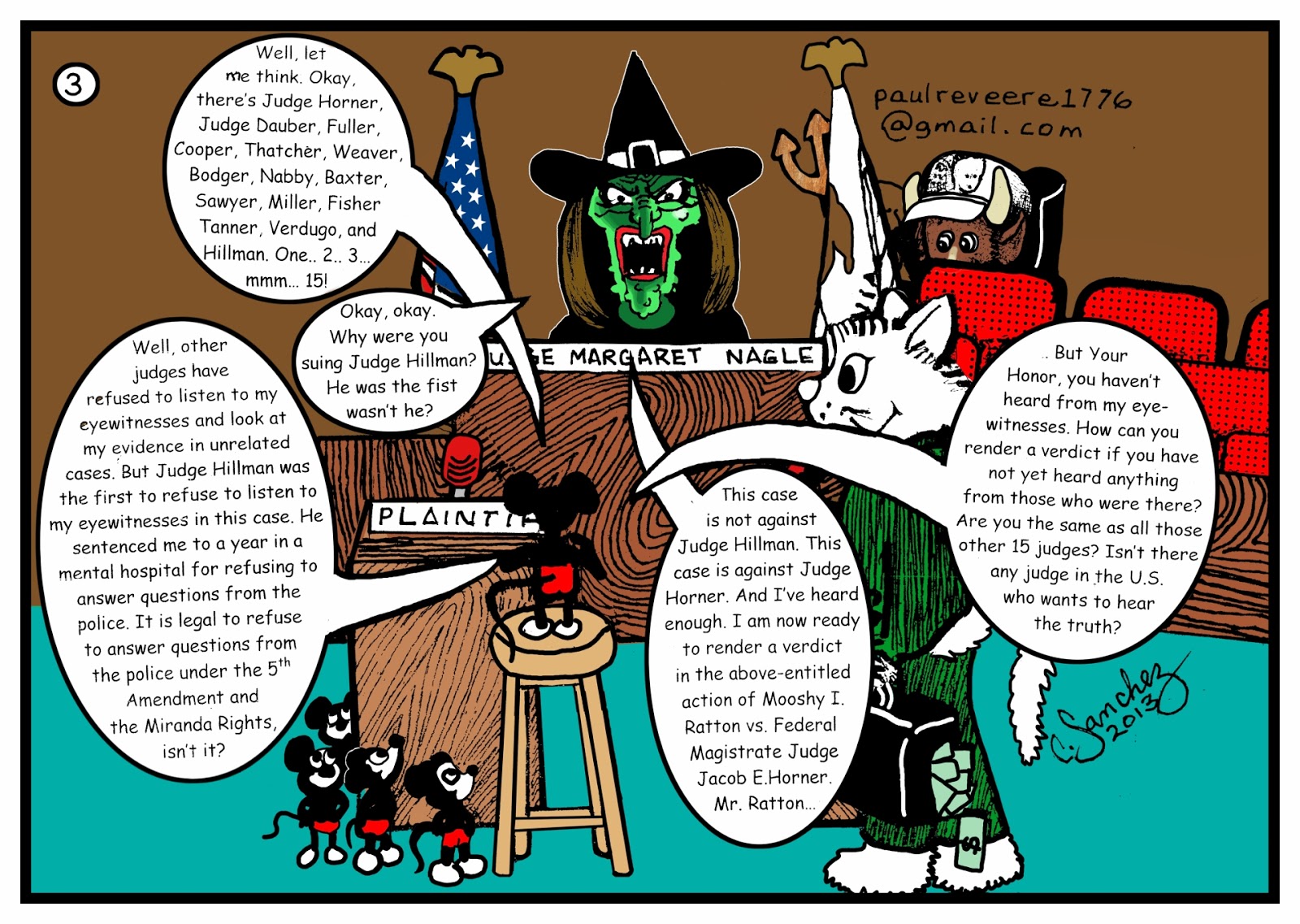In a secret letter
written to Judge Margaret Nagle, Probation Officer Karenina Legg wrote:
|
It is hoped a brief period of confinement
will cause the defendant to reconsider his plan to disregard federal
regulations and to choose lawful means by which to express his political
concerns.
|
Karenina
Legg was not there when I was arrested for distributing political literature on
a public sidewalk. She was not even present at my trial. She says that I had a
“plan to disregard federal regulations” because she heard this from Pedro
Castillo who says that the officers said that I had said. I did not know that
Officer Legg had written this letter until 6 years after my release from
prison. Pedro Castillo was paid to prove to the judges that I had no such plans
to disregard any federal regulations. In court, Mr. Castillo put on a big Hollywood show about how I had no intentions to disregard
any laws, or regulations. But secretly, he took a document (see pages E12 and
E13 of The Mother of All Evidence)
that I had given to him to prove that I had no intentions to disregard any
regulations and secretly gave it to Karenina Legg. He told her to use it to
prove to the judges that I was going to do a serious crime unless the judges
put me in prison for as long as possible. If you read this document, you will
see that on the first page on the very first line it reads: GOAL: to get Carl
Sanchez arrested WITHOUT DOING ANY
CRIME. The 6th Amendment guarantees that I have a right to
confront all witnesses against me. But how could I confront Karenina Legg when
she was not there at my trial and I didn’t know that she had written such a
letter against me until 6 years after I got out of prison? And how can I
confront all witnesses against me if nobody told me that Pedro Castillo, my
“lawyer,” was one of these secret witnesses against me? When I asked Mr.
Castillo to write a letter about why my eyewitnesses were forbidden to testify
about the truth, Mr. Castillo said, “I’m not going to write such a letter
because I didn’t want your eyewitnesses to tell the truth. I didn’t want you to
distribute any literature and I wanted you to go to prison.”
Karenina
Legg says that if I spend a “period of confinement” (i.e., prison) I will
“choose lawful means by which to express my political concerns.” Okay, what
“lawful means” is she talking about? Does she mean suing Pedro Castillo or
suing the judges? Supposing that I had a ton of money to sue Judge Hillman and
pay my witnesses for all those days of missing work to show up to all the
hearings, motions, depositions, stipulations, demurrers, status hearings, etc.,
etc., that it takes in any normal civil case, what guarantee do I have that the
next judge won’t rule again that all my eyewitnesses are all irrelevant? So if
Judge Verdugo or Hugo or Dego rules that all my eyewitnesses are all
irrelevant, then what? Do I sue Judge Verdugo? Then what do I do if Judge Tanner
rules that my eyewitnesses are irrelevant? Do I sue Judge Tanner? How many judges
do I have to sue until I find a judge who wants to hear the truth? What does
Karenina Legg mean by “lawful means?” Two judges refused to listen to my
eyewitnesses: Hillman and Nagle. At Del Amo Behavioral Health Canter, the judge
refused to look at the evidence that would prove that I had more than $8 to my
name. At El Centro , Judge Jack Staton refused to
let me subpoena my passport from the State Department to prove that I am a U.S.




No comments:
Post a Comment